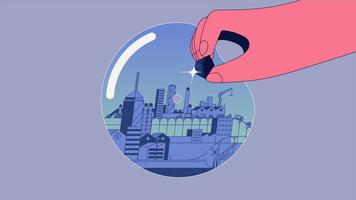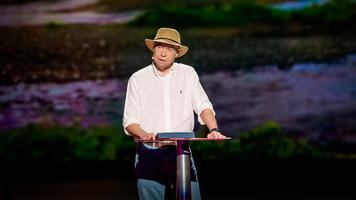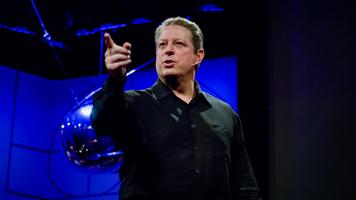TED Climate: What happens to the plastic you throw away?
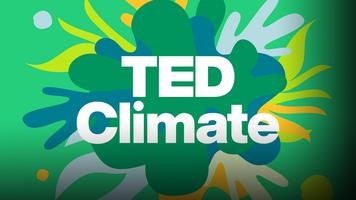
Plastic is everywhere. We know we should cut down on it where we can, but is plastic ever the answer? In this episode of TED Climate, a whole world of plastic you never knew about. Starting with: which bag is best -- paper, plastic or cotton? The answer might surprise you. Host Dan Kwartler breaks down the pros and cons of each bag and which you...
TED Countdown: TED Explores: A New Climate Vision
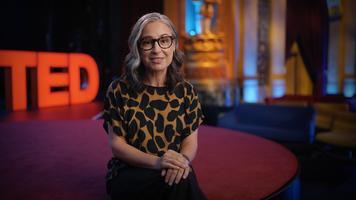
The impacts of climate change are growing, but so are the world's attempts to stop them. Hosted by Manoush Zomorodi of the TED Radio Hour, this special TED documentary examines the rapid technological revolution underway — and the real possibility of a better future for all. (Featuring urban planner Anika Goss, scientist and carbon expert Julio ...
Carol Farbotko and Ingrid Boas: Where will you be able to live in 20 years?
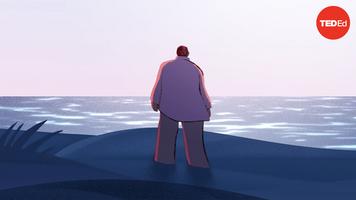
Humanity has always adapted to changing weather and moved to regions that best support cultural lifestyles and livelihoods. However, the rise in extreme weather is endangering coastal communities, and even for those with the resources to take action, the pace and nature of climate change has made it difficult to adapt. Carol Farbotko and Ingrid ...
Peter Schwartzstein: Why violence is rising with global temperatures
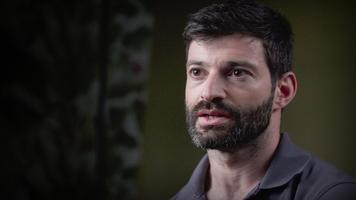
Climate change doesn't just melt ice caps, it also fuels conflict, corruption and division worldwide, explains TED Fellow and journalist Peter Schwartzstein. From droughts in Syria to rising seas in Bangladesh, he explores how climate stress escalates existing social instabilities — and underscores why every effort to curb a warming world matter...
Shannon Odell: The rights you might not realize you have
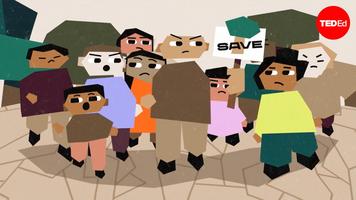
Since 2015, an unprecedented movement has been sweeping courts around the world. Groups of young plaintiffs are suing their governments for their inaction on tackling climate change. These suits argue that climate inaction violates their basic human rights. But what do human rights have to do with the environment? Shannon Odell examines our righ...
Shannon Odell: What Earth in 2050 could look like
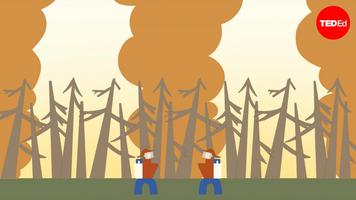
While we’re already feeling the devastating effects of human-caused climate change, governments continue to fall short on making and executing emissions pledges that would help thwart further warming. So, what will our world look like in the next 30 to 80 years, if we continue on the current path? Shannon Odell offers a glimpse at Earth's possib...
R. Saravanan: Is the weather actually becoming more extreme?
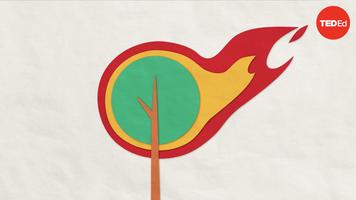
From 2016 to 2019, the world saw record-breaking heat waves, rampant wildfires, and the longest run of category 5 tropical cyclones on record. The number of extreme weather events has been increasing for the last 40 years, and current predictions suggest that trend will continue. So, is the increase in extreme weather due to random chance, or ch...
Kristen Bell + Giant Ant: Why is 1.5 degrees such a big deal?
Kristen Bell + Giant Ant: Why act now?
Kristen Bell + Giant Ant: What is net-zero?
Kristen Bell + Giant Ant: Why is the world warming up?
Kristen Bell + Giant Ant: Where does all the carbon we release go?
Stephanie Honchell Smith: What the oil industry doesn’t want you to know
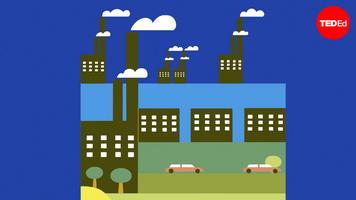
Throughout the 1980s, oil industry reps discussed the dangers of burning fossil fuels, acknowledging the risk their product posed to the future of humanity. However, instead of warning the public or pivoting towards renewable energy sources, they doubled down on oil — and launched a decades-long campaign to discredit climate change science. Step...
James Hansen: Why I must speak out about climate change
Rumaitha Al Busaidi: Women and girls, you are part of the climate solution
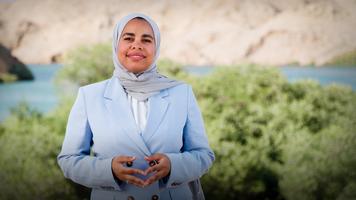
What does gender equality have to do with climate change? A lot more than you might think. Empowering women and girls around the world is one of the most important ways to combat carbon pollution and is projected to reduce CO2-equivalent gases by a total of 80 billion tons. Entrepreneur, scientist and TED Fellow Rumaitha Al Busaidi looks at why ...
Ted Halstead: A climate solution where all sides can win
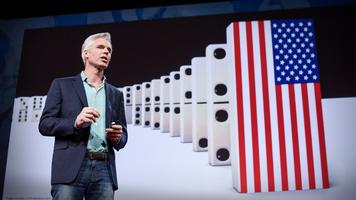
Why are we so deadlocked on climate, and what would it take to overcome the seemingly insurmountable barriers to progress? Policy entrepreneur Ted Halstead proposes a transformative solution based on the conservative principles of free markets and limited government. Learn more about how this carbon dividends plan could trigger an international ...
Al Gore: The case for optimism on climate change
Camille Seaman: The Arctic vs. the Antarctic
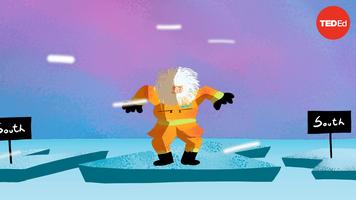
How can you tell the two poles apart? Where are the penguins? What about the bears? The Arctic pole is located in the Northern Hemisphere within the deep Arctic Ocean, while the Antarctic pole is smack in the middle of the ice-covered Antarctica. Camille Seaman describes how enterprising people and organisms have found ways to reside around both...
Al Gore: This is the moment to take on the climate crisis
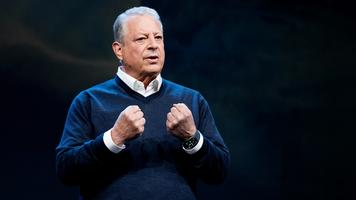
Lighting up the TED stage, Nobel laureate Al Gore takes stock of the current state of climate progress and calls attention to institutions that have failed to honor their promises by continuing to pour money into polluting sectors. He explains how the financial interests of fossil fuel companies have blocked the policymaking process in key count...
Xiye Bastida: Your inner fire is your greatest strength
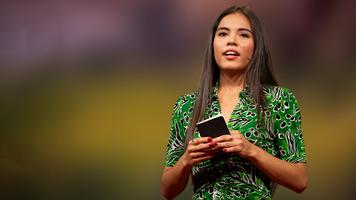
Hope isn’t just a feeling, but a skill you can practice, explains climate activist Xiye Bastida. Taking cues from the resilience of nature, she shows why trusting Indigenous leaders who’ve protected the planet for generations can help turn despair about the climate into the momentum needed to ignite meaningful change. A powerful reminder that th...
Nigel Topping: We need to green the economy while restarting it

Nigel Topping has a cool job: he's the UK's High Level Climate Action Champion for COP26, the UN's climate change conference taking place in 2021. In this wide-ranging interview, Topping discusses his work with scientists, businesses and cities to drive action on climate change and get the world committed to net zero emissions by 2050. He also e...
Marcelo Mena: The economic benefits of climate action
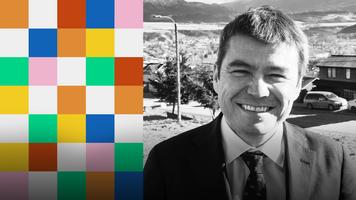
Marcelo Mena, the former environment minister of Chile, is on a mission to create a zero-emission economy in his country by 2050. In a conversation about climate action, he discusses how the COVID-19 pandemic is changing Chile's ambitious plan to tackle climate change -- and explains why the green recovery needs to be powered by both political l...
Parag Khanna: Where on Earth will people live in the future?
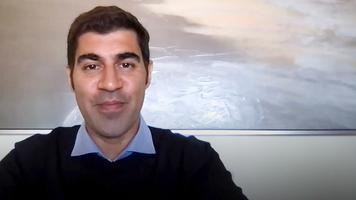
From the return of nomadic living to a climate-disrupted world, author and global strategist Parag Khanna has some predictions for humanity. Get a fascinating glimpse at the future as he tackles an urgent question: Where on Earth will eight billion humans live in the uncertain times ahead? (This conversation, hosted by TED current affairs curato...
Carolyn Beans: Does planting trees actually cool the planet?
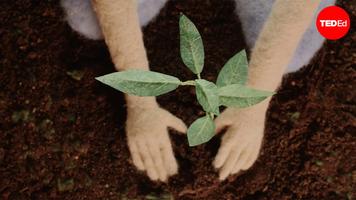
In fighting climate change, few solutions are discussed more than planting lots and lots of trees. It sounds simple enough: trees absorb CO2 from the atmosphere, so planting more should help eliminate greenhouse gasses. The trouble is, tree planting efforts don’t always work as planned. So, when is it bad to plant trees? Carolyn Beans explores s...
Kotchakorn Voraakhom: How to transform sinking cities into landscapes that fight floods
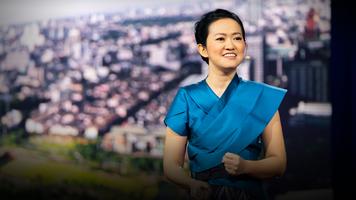
From London to Tokyo, climate change is causing cities to sink -- and our modern concrete infrastructure is making us even more vulnerable to severe flooding, says landscape architect and TED Fellow Kotchakorn Voraakhom. But what if we could design cities to help fight floods? In this inspiring talk, Voraakhom shows how she developed a massive p...
Al Gore: New thinking on the climate crisis
Allan Savory: How to fight desertification and reverse climate change
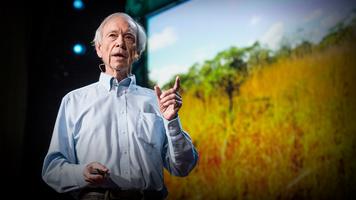
(NOTE: Statements in this talk have been challenged by scientists working in this field. Please read "Corrections & Updates" below for more details.) "Desertification is a fancy word for land that is turning to desert," begins Allan Savory in this quietly powerful talk. And it's happening to about two-thirds of the world's grasslands, accele...
M Jackson: How to grow a glacier
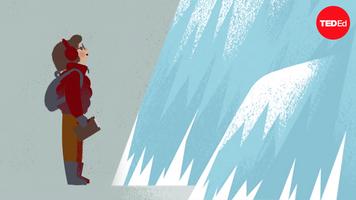
In the 13th century, Genghis Khan embarked on a mission to take over Eurasia, swiftly conquering countries and drawing them into his empire. But, legend has it that there was one obstacle that even he couldn't overcome: a towering wall of ice, grown by locals across a mountain pass. M Jackson explores the ancient methods of growing glaciers and ...
Iseult Gillespie: What Earth in 2125 could look like
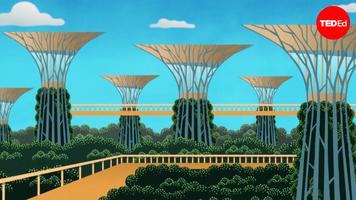
Faced with the realities of current crises, it’s easy to assume our world is headed in a bleak direction. But there’s good reason to be hopeful— with developments in science and technology, a positive future is more viable than ever before. So, what if the future was awesome? Iseult Gillespie explores what three cities could look like in 100 yea...
Jean-François Bastin: What if there were 1 trillion more trees?
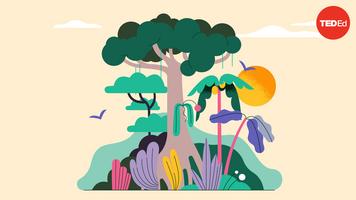
Today humanity produces more than 1,400 tons of carbon every minute. To combat climate change, we need to reduce fossil fuel emissions, and draw down excess CO2 to restore the balance of greenhouse gases. Like all plants, trees consume atmospheric carbon through photosynthesis. So what can trees do to help in this fight? Jean-François Bastin dig...


